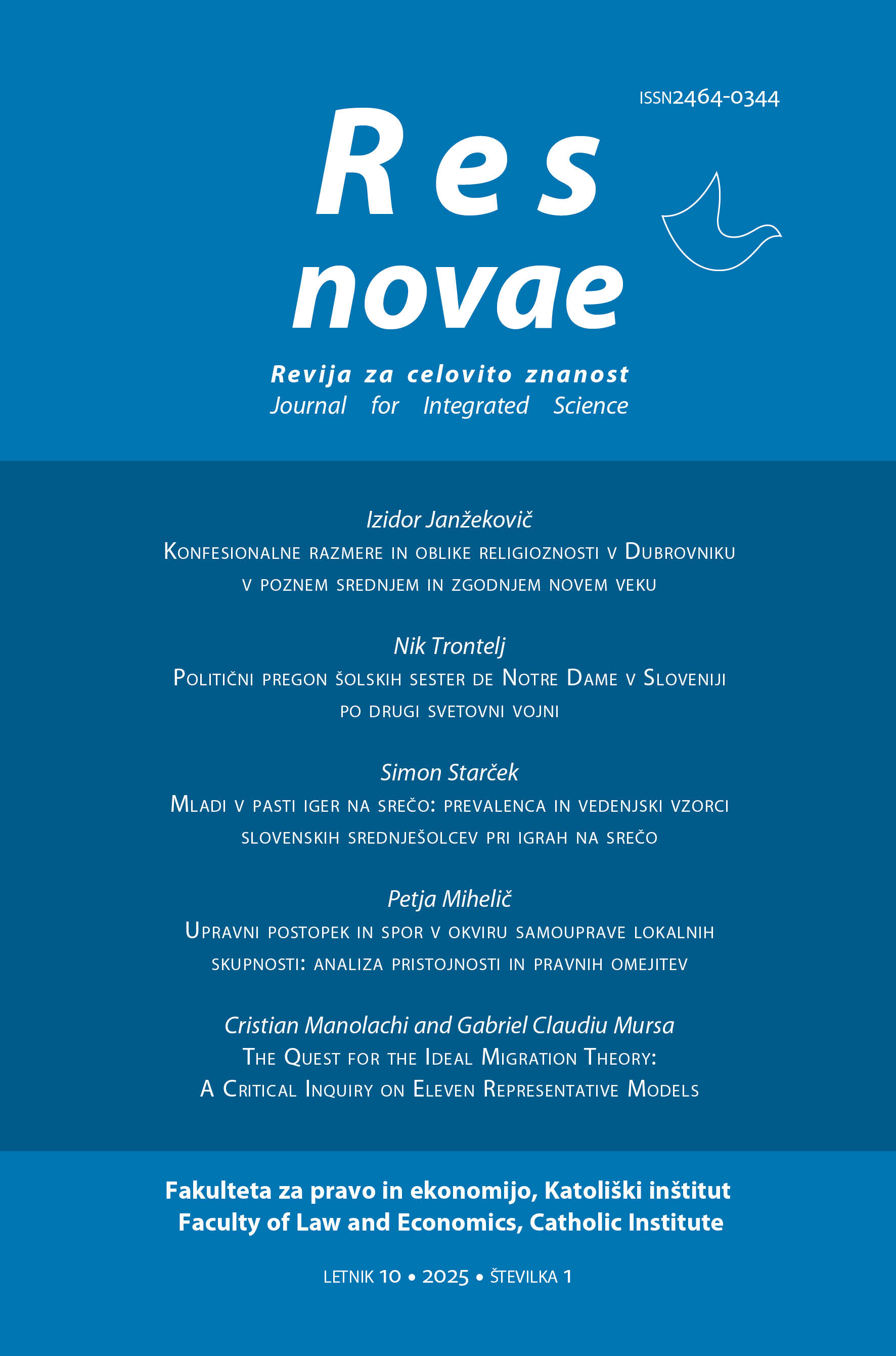The Quest for the Ideal Migration Theory: A Critical Inquiry on Eleven Representative Models
Cristian Manolachi and Gabriel Claudiu Mursa
The Quest for the Ideal Migration Theory: A Critical Inquiry on Eleven Representative Models
DOI: 10.62983/rn2865.25a.5
Keywords: migration, neoclassical paradigm, human capital theory, Austrian economics migration perspective, new economics of labor migration, dual labor migration theory, mobility transition
Abstract:
A major concern facing modern humanity is migration, which presents a quadruple dilemma – ethical: the natural aspiration of people to relocate freely; legal: the legal entitlement of people to freely exercise their private property rights; economic: the proved effectiveness of unfettered labor mobility; and cultural: the natural propensity of communities to preserve their language, religion, and customs. Although many models have done a good job of capturing the material interests of rational individuals, their reliance on caeteris paribus and ignorance of cultural variables make their interpretations far from accurate. Other models recreate tangible real worlds, but it is difficult to isolate and quantify the proposed qualitative factors. The Theory Relevancy Bipolar Testing Spectrum, a new tool we developed, allowed us to compare eleven migration theoretical systems along two axes: macroeconomic against microeconomic methods, and abstract models against those that recreate specific environments. Given the scientific disagreement about which hypothesis is most likely to explain the phenomenon, we therefore proposed the use of microeconomic analysis as a means of achieving the fragile balance between abstract and real, conceptual and tangible, universal and specific, economic and cultural, quantitative and qualitative.
PDF



